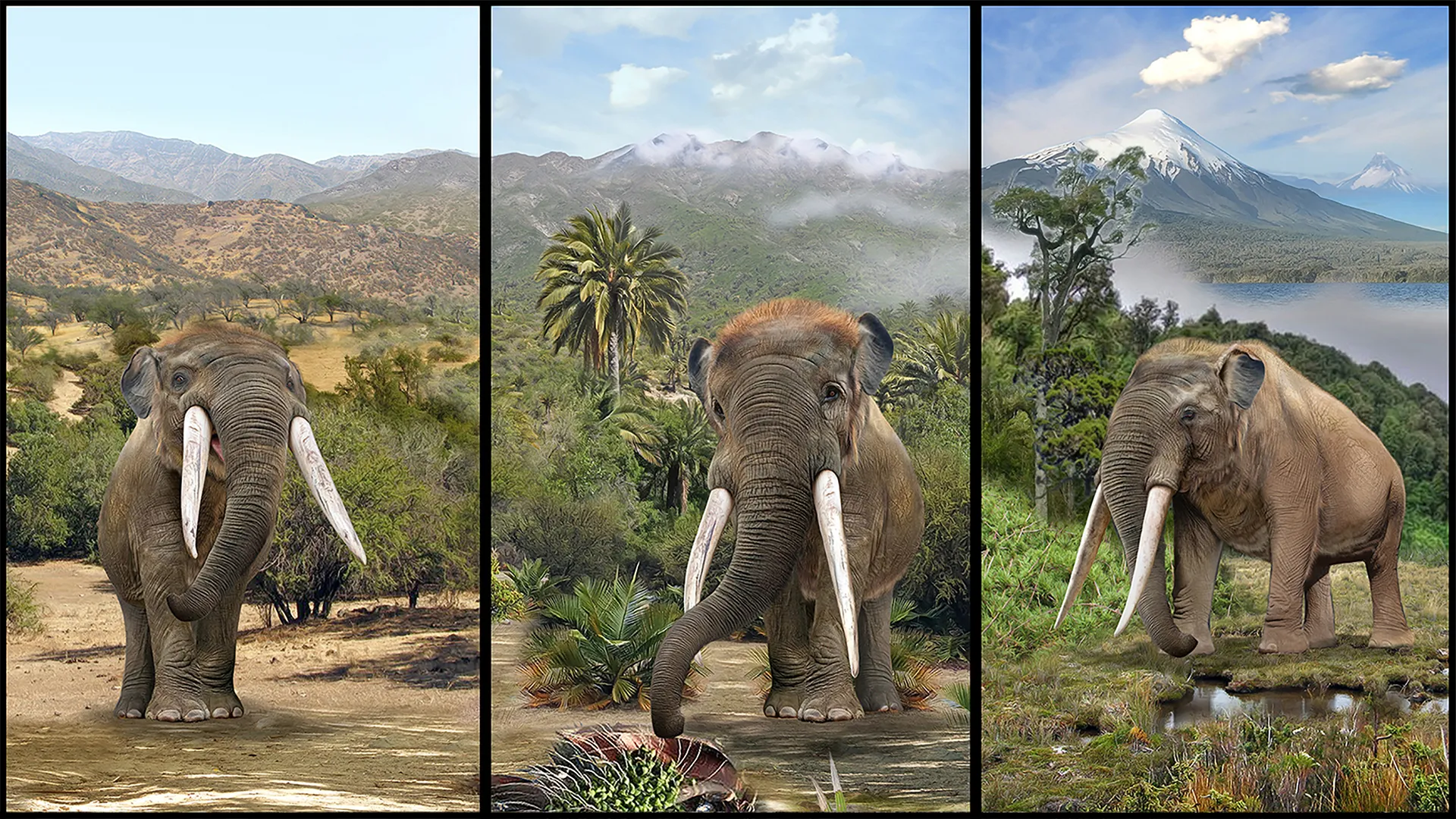Mastodons: Lost Giants, Lost Ecological Partners
Key discovery:
A recent study led by the University of O’Higgins, Chile, provides the first direct fossil evidence that South American mastodons (Notiomastodon platensis) regularly ate fruit and played a crucial role in dispersing seeds of large-fruited plants during the Pleistocene. Their extinction about 10,000 years ago disrupted this vital ecological function.
Background and Significance
- Mastodons were elephant-like megafauna that lived across South America.
- Many tropical plants evolved large, sweet fruits to attract big animals for seed dispersal — a theory known as the “neotropical anachronisms hypothesis” (proposed in 1982 by Janzen and Martin).
- Until now, this hypothesis lacked direct fossil proof of frugivory (fruit-eating) by extinct megafauna like mastodons.
The Study
- Methods: Researchers analyzed 96 fossil teeth collected from sites spanning over 1,500 km in Chile, especially Lake Tagua Tagua, rich in Pleistocene fauna.
- Techniques included isotopic analysis, dental microwear, and fossil calculus examination.
- They found starch residues and plant tissues consistent with fleshy fruits, including those of the Chilean palm (Jubaea chilensis), confirming mastodons frequently consumed fruit.
Ecological Impact
- Mastodons roamed forested areas rich in fruit and dispersed seeds over long distances.
- Their extinction broke a co-evolutionary relationship essential for forest regeneration.
- Plants that depended on mastodons for seed dispersal, like the gomortega (Gomortega keule), Chilean palm, and monkey puzzle tree (Araucaria araucana), now have small, fragmented populations with low genetic diversity.
Conservation Message
- Using machine learning, researchers found that 40% of mastodon-dependent plants in central Chile are threatened — much higher than in tropical regions where other seed dispersers still exist.
- This highlights how losing megafauna can have long-lasting botanical and ecological consequences.
- The study underscores paleontology’s role in revealing past ecological networks and informing present-day conservation efforts.
Quote to remember:
“Paleontology isn’t just about telling old stories. It helps us recognize what we’ve lost — and what we still have a chance to save.” — Florent Rivals
